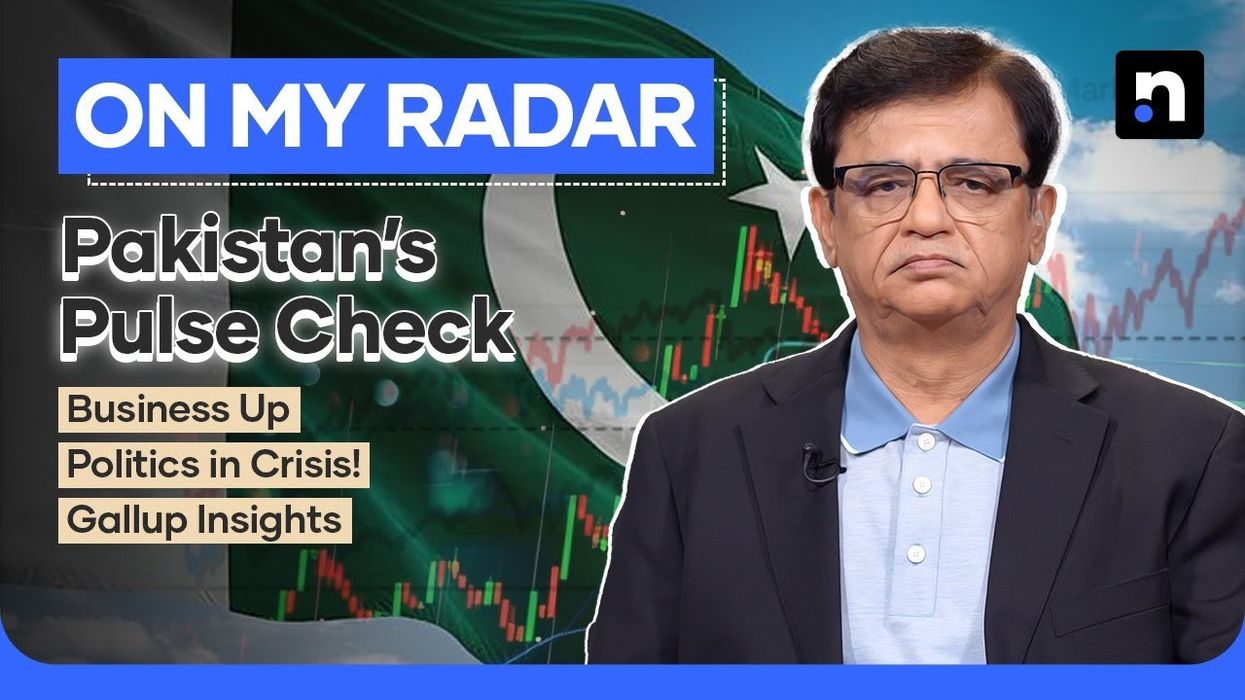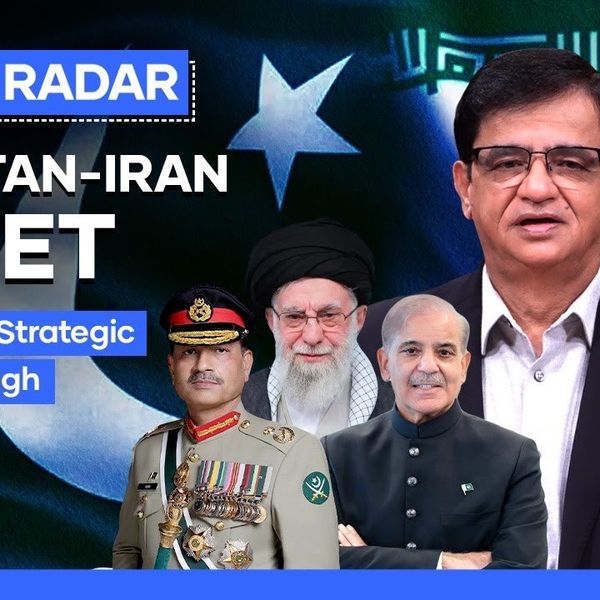Survey shows 61% of businesses optimistic about future despite economic hurdles
Kamran Khan notes business optimism is rising, but political uncertainty remains a major concern for investors
News Desk
The News Desk provides timely and factual coverage of national and international events, with an emphasis on accuracy and clarity.
Business confidence in Pakistan has improved in recent months, but concerns over political instability and policy continuity persist, according to a new survey by Gallup Pakistan.
The Business Confidence Index, which surveyed 482 businesses across 30 districts, shows that 61% of respondents expect better economic conditions in the future. This marks a 10% increase in confidence compared to the first half of 2024. However, uncertainty over governance and long-term policy stability continues to weigh on investors.
“The survey results indicate that the period of extreme pessimism is fading, and businesses are hopeful,” Gallup Pakistan’s Executive Director Bilal Gilani said during a podcast with Kamran Khan. “However, they still seek clarity on the government’s direction.”
Gradual recovery
The survey highlights a 20% decrease in the number of businesses that believe Pakistan is headed in the wrong direction. This shift reflects growing optimism within the business community, with a notable 36% increase in expectations for 2025.
According to Gilani, many businesses feel they are moving out of a difficult period but acknowledge that sustained economic growth is essential.
While optimism is growing, 62% of respondents still feel uncertain about the country’s overall trajectory. A major concern is whether the current government will remain stable and whether its economic policies will continue uninterrupted.
“There is a fear that political instability could disrupt economic momentum,” Gilani noted. “Business owners want assurances that economic reforms will persist.”
Key challenges
Despite the improved outlook, businesses continue to grapple with structural challenges.
High electricity prices: 15% of respondents cited electricity costs as their biggest concern. The high cost of power remains a significant burden on manufacturers.
Taxation and regulatory burdens: Many businesses feel overtaxed and cite excessive regulatory constraints as a barrier to growth.
Corruption: A third of businesses reported having to pay bribes to government officials in the past six months.
Gilani emphasized that resolving these issues will be crucial for ensuring long-term economic stability. “If Pakistan’s economy is to truly take off, the government must address energy prices, taxation, and corruption head-on,” he said.
PML-N gains favor over PTI in economic management
When asked to compare the current Pakistan Muslim League-Nawaz (PML-N) government with the previous Pakistan Tehreek-e-Insaf (PTI) administration, 41% of businesses said the PML-N had performed better in handling economic affairs.
However, opinions remain divided:
- 21% saw no difference between the two governments.
- 38% believed the current government was worse.
According to Gilani, while business sentiment favors the PML-N government’s economic approach, confidence in political stability remains fragile.
Growing acceptance of ‘hybrid’ political system
The survey also reveals an increasing public tolerance for a “hybrid” governance model, where the military plays a role in economic and policy matters.
“People appear tired of political infighting and are more accepting of a system where civil and military institutions work together,” Gilani said.
This perception has grown stronger compared to the PTI era. However, many respondents hesitate to credit the civilian government for economic improvements, instead attributing progress to institutions like the Special Investment Facilitation Council (SIFC), which is seen as military-backed.
Imran Khan: The leader of Generation Z
Another key finding highlights the generational divide in Pakistani politics. The survey suggests that Generation Z (ages 18-30) overwhelmingly supports Imran Khan and PTI.
“This group is well-educated, active on social media, and largely urban,” Gilani explained. “For them, democracy means strong leadership, and their ideal leader is Imran Khan.”
In contrast, 65% of Pakistanis—mostly older and rural populations—do not share the same political enthusiasm and are more open to hybrid governance models.
Deepening institutional polarization
Beyond the economy, the survey raises concerns about institutional polarization. Since 2018, trust in state institutions has eroded, leading to growing political divisions.
“The most alarming trend is not just economic instability but deepening ideological divides over national institutions,” Gilani said.
Discontent is particularly high in Khyber Pakhtunkhwa and Balochistan, where dissatisfaction with governance is rising. According to Gilani, ignoring these concerns could lead to long-term instability.
A call for national dialogue
The survey underscores the need for a broad, inclusive dialogue to bridge divides and restore institutional trust.
“There’s still room for conversation,” Gilani said. “We need a serious national dialogue to bring disillusioned groups back into the mainstream.”











Comments
See what people are discussing